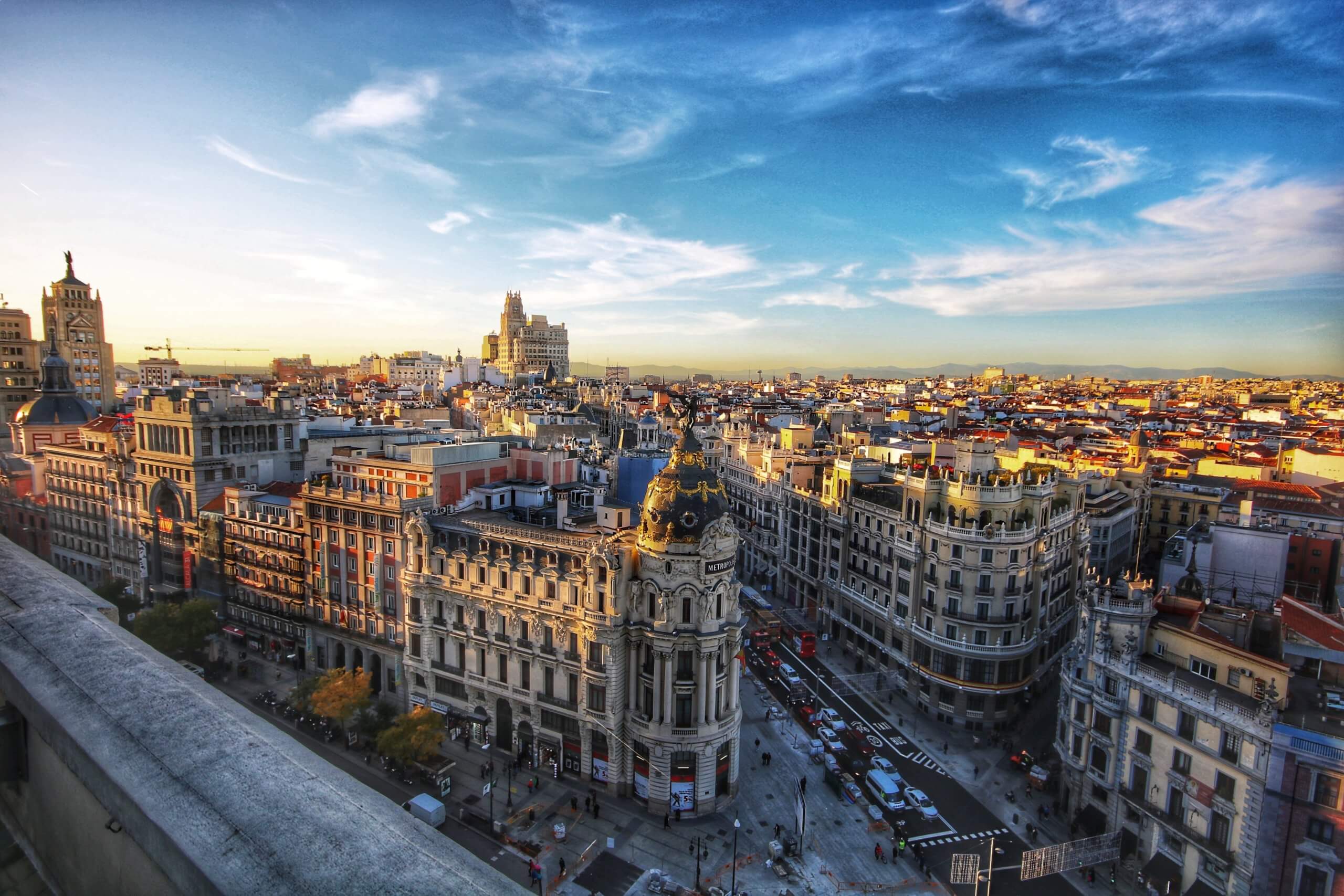- Guides
Our Top 10 Tips to Finding Friends Abroad
Let’s face it, moving abroad, where everything is unfamiliar, can feel like a bit of a maze. You’re struggling with...
Read moreGuides
The beautiful Baltic nation Latvia is one of the most affordable places in Europe and offers excellent potential for expats. A large portion of the country’s workforce is actually of foreign origin. This small country between Estonia and Lithuania has approximately two million inhabitants and offers plenty of natural wonders. For example, four national parks, many gorgeous lakes, castles, cliffs, and fascinating historical relics. The majority of the land is made of calm nature, being Riga the only exception where there is also plenty to do. Charming restaurants and corners, and lovely parks with beautiful scenery, are some of the things you can find in the vibrant and fast-paced Latvian capital.
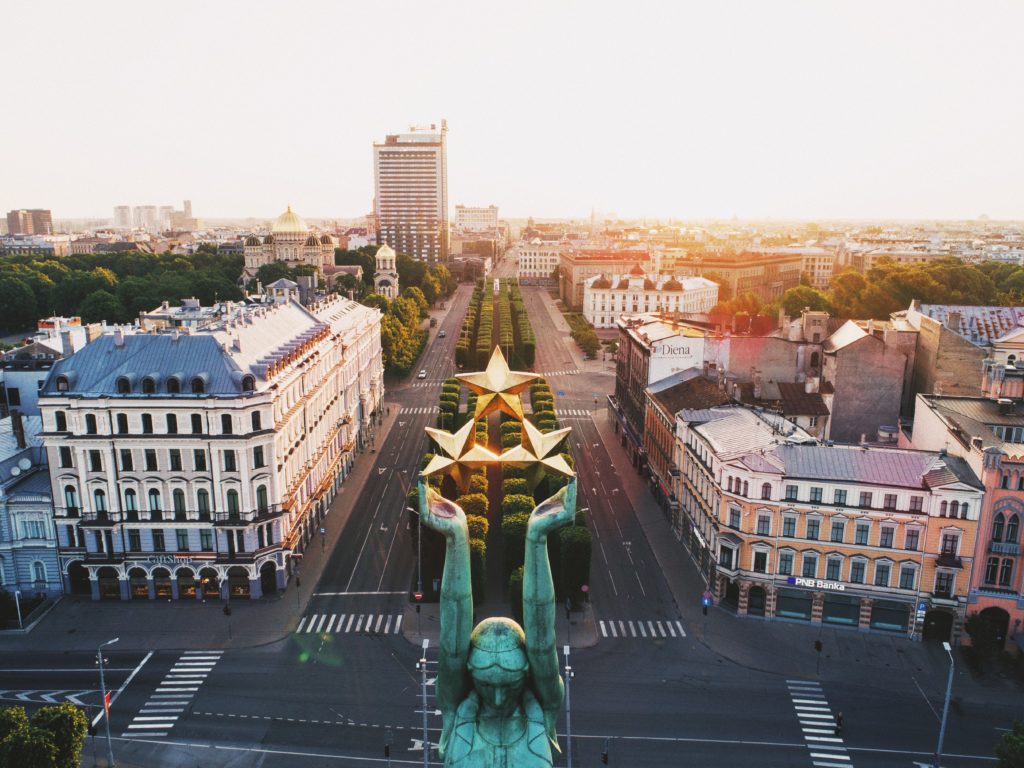
Latvia has not been spared either from the Coronavirus. At the moment, the following rules apply when you arrive in the country:
These rules are set to try to minimize the cases and reduce the spread. Remember that the situation changes daily, and the rules and restrictions that the country announces may vary shortly too!
Weather: Dry, warm summers and snowy winters - from +25-30 to -5 °C
Population: Approximately 1.9 million citizens
History: Latvia declared independence in 1991 after the collapse of the Soviet Union. Due to these historical ties with the former old federal state, one of the largest groups living in Latvia is Russians (27% of the total population). There are also Belarusians (3.5%), Ukrainians, and Poles (around 2% each).
The first and most important thing for you to do when moving to Latvia is to find a place to live. You can start looking for an apartment before you relocate by browsing online portals or Facebook groups, and once you arrive, the most convenient next step is to contact local realtors if you want to change the place to stay. Since they are more familiar with the neighbourhoods, they can provide you with a complete range of options. It will be more reasonable and cheaper to rent a place in most cases, and since most apartments are furnished and ready for you to move in, you won’t have to worry about this. Based on your planned length of stay, you have the flexibility to choose between a short-term rental (0-6 months) or a long-term rental agreement.
Many expats choose to settle in Riga, where most job opportunities are for international workers. You can find a one-bedroom apartment in Riga for €350 per month and a three-bedroom unit for €600. Another popular area is the city of Jurmala, which is situated 25 kilometres west of Riga. A one-bedroom apartment in Jurmala typically costs €400, while a three-bedroom unit is €500.
As with other rentals in other countries, you will need to pay for utilities like electricity, water, or gas. Depending on the city and area, the cost range is usually between €60-100 per month.
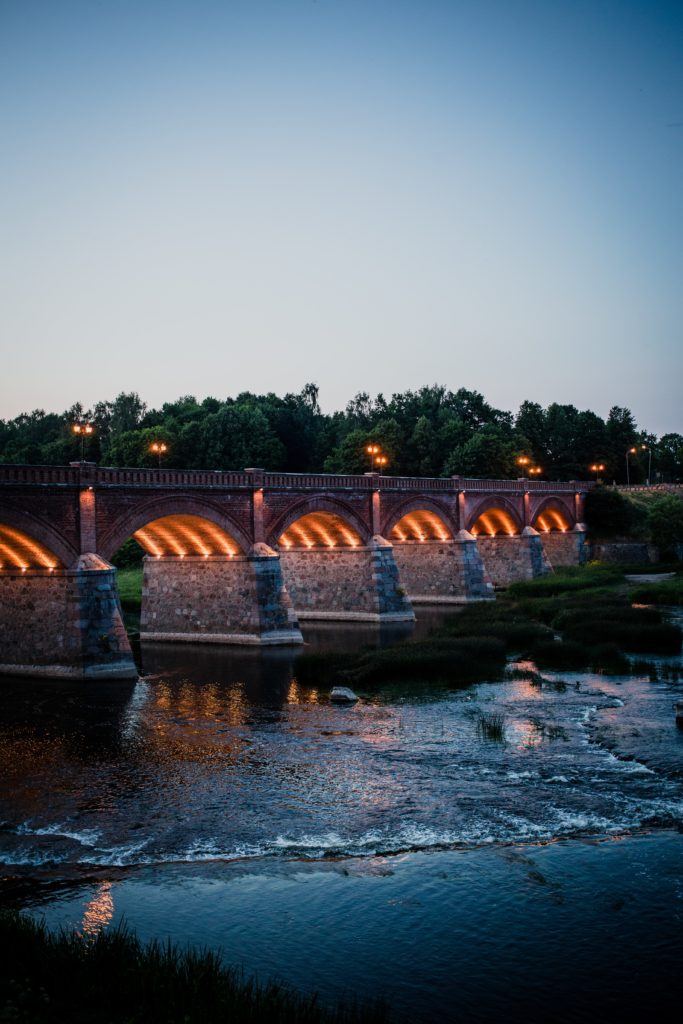
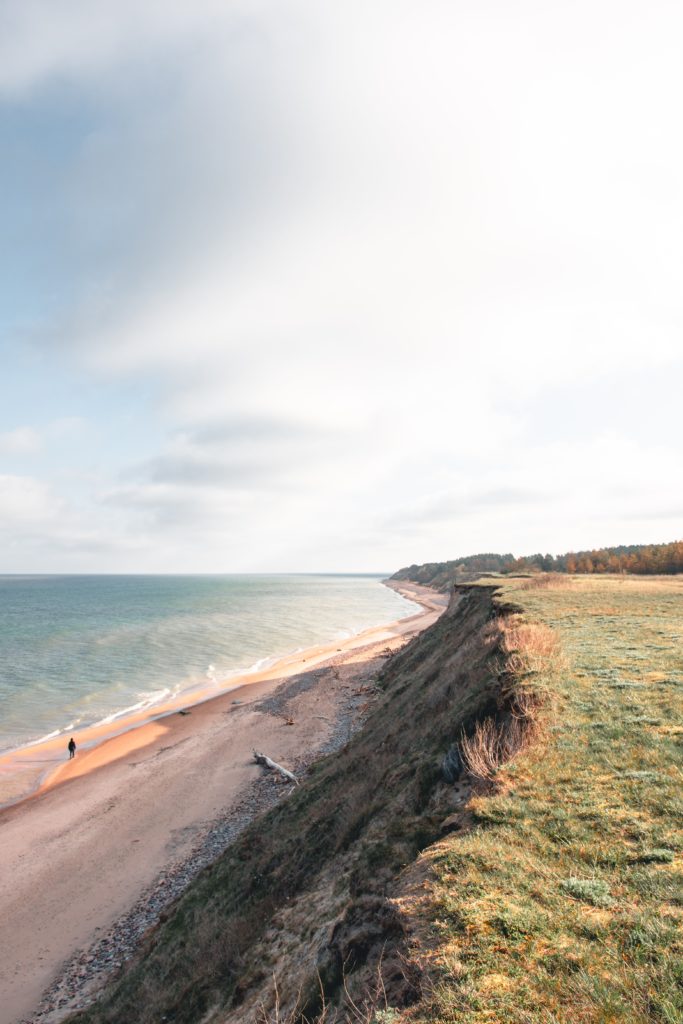
Living in Latvia is a lot cheaper compared to western Europe. It is an ideal destination for expats who want to experience excellent living standards but must stick to a budget.
When it comes to eating out, you can find many good options. Restaurants in Riga offer set menus for only €8, for example. You can also find several trendy bars and cafes where drinks and hot beverages can be around €4-5. When it comes to mid-range restaurants, you won’t pay more than €35-40 for a meal for two.
Other things that are pretty affordable in Latvia are the internet connection and mobile data plan. If you wish to subscribe to a company that offers fast and unlimited internet, you will roughly pay €20 per month and €10 for your mobile tariff.
| RIGA | |
| Groceries | |
| 1 kg oranges | 1.55 € |
| 12 eggs 1 kg potatoes | 1.93 € 0.48 € |
| Restaurant/cafe | |
| Imported beer (0,5 l) | €3 |
| Meal for 2 at restaurant | €40 |
| Cappuccino | €2.65 |
| Sports / Leisure | |
| Gym membership | €39/month |
| Cinema ticket | €7 |
| Public transport | |
| Single ticket bus | €1.17 |
| Taxi (normal tariff, 1km) | €0.70 |
| Average salary (NET) | €1,000 |
Buses and an extended railway network connect the main cities in Latvia. There is no underground system in the capital, but you can easily move by bus, trolley-buses, or tram. A single ride on any of these will cost you €1,15. However, you can also buy monthly travel passes (about €50 a month) through an app (e-ticket) or by getting a plastic card that you top up. You can check more information regarding timetables, routes, and maps on the Rigas Staiksme website.
However, Riga is a pleasant city for taking long walks or cycling when going somewhere, especially in the summer. Winding alleyways, lovely squares, and the canal will leave you open-mouthed!
If you want a taste of nature, you are in luck! Latvia is a very green country that offers many stunning landscapes and exciting activities. You can find many parks where you can spend your days off, but if you want to take it one step further, go to The Kemeri National Park, situated 1-hour train ride from Riga. This park is unique for its great biological diversity and has wooden paths leading through pine trees and several lakes. We recommend The Great Kemeri Bog Boardwalk, a popular place among the photographers of sunrise and sunset scenes in Latvia, regardless of the season or weather.
Another exciting location is Seaside Park in Liepaja. This is a three-kilometre wooded park, home to over 140 imported and local species of trees. Aside from being in nature, you can also enjoy swimming, playing mini-golf, tennis, trampoline, and go-kart when the weather allows it. And, if you have some time left on the same day, the “Ventas Rumba”, Europe’s widest waterfall, is just one hour away.
From July to August, the warmest months in Latvia, you can go for a nice swim at Cape Kolka, one of the longest sand beaches in all of Europe. On this picturesque beach, where the Baltic Sea meets the Gulf of Riga, you can climb the observation tower or taste smoked fish made by local fishermen.
However, the old town in Riga is perfect if you are looking for that fairytale feeling. Get lost in the streets and look above to observe the fascinating buildings with beautiful colourful facades. Moreover, you will find cosy cafes, restaurants, and cute souvenir shops on almost every corner. Perfect places to take your family and friends when they come for a visit!
As said, the population of Latvia is hugely made up of expats. It’s easy to find people on the same journey as you, share your experiences, and help each other. One way to connect with other expats is to join Facebook groups such as Expats in Latvia. Via sites like Internations, you can also connect with other expats and find events and other activities to join.
Although the official language is Latvian, many people also speak Russian or English as their second language. As an expat, it can be helpful to learn some basic Latvian, and the locals will appreciate it. Here are some phrases to begin with:

Job opportunities for expats in Latvia are mainly within IT, tourism, and gastronomy. Nevertheless, the capital Riga offers a wide variety of jobs within other sectors. Most of the jobs for expats are centred and located there (keep in mind that almost half of Latvia's population lives in the capital). You can find a job in Latvia as a customer service agent or sales agent at Shared Service Centers such as Transcom or as a translator, English teacher.
Moreover, Latvia's combination of European working culture and strategic location (close to Russia) attracts many IT companies, making the ICT sector expand rapidly. The demand for people here is expected to increase in the future, so if your education or background is in this area, you have a good chance of scoring a job!
When you apply for a job in Latvia, you need to translate your CV into English and update your CV and cover letter with the correct information. Remember to highlight your strengths and add any additional languages you speak (do you know a bit of Russian? Include it in your resumé). You should also be aware that personality often outweighs experience, so if you get scheduled for an interview after your application, make sure to wow the recruiters. If you get called for an interview, it will most likely be via Skype. Expect an interview with a polite, formal tone more than a friendly, relaxed one (but warm anyway!).
People in Latvia value their privacy and do not appreciate people asking about their family or personal lives. Therefore, it is better to avoid asking about personal matters, especially at work. Latvians tend to be very reserved and do not like expressing their emotions in public (they are also known for having quite stern facial expressions). They like to get straight to the point and to adopt a direct approach when addressing business topics.
Their business style follows, in general, a hierarchical approach, which can sometimes slow down decision processes. But that doesn't mean they are very strict! For example, when it comes to punctuality, Latvians are relatively tolerant, especially with foreign coworkers. This fact is a sign that people are more actively trying to foster a pleasantry culture at the workplace. This is particularly true of the younger generations and in more diverse and multicultural offices and international companies. Don't hesitate to ask your colleagues for an after-work activity or help when you need it!
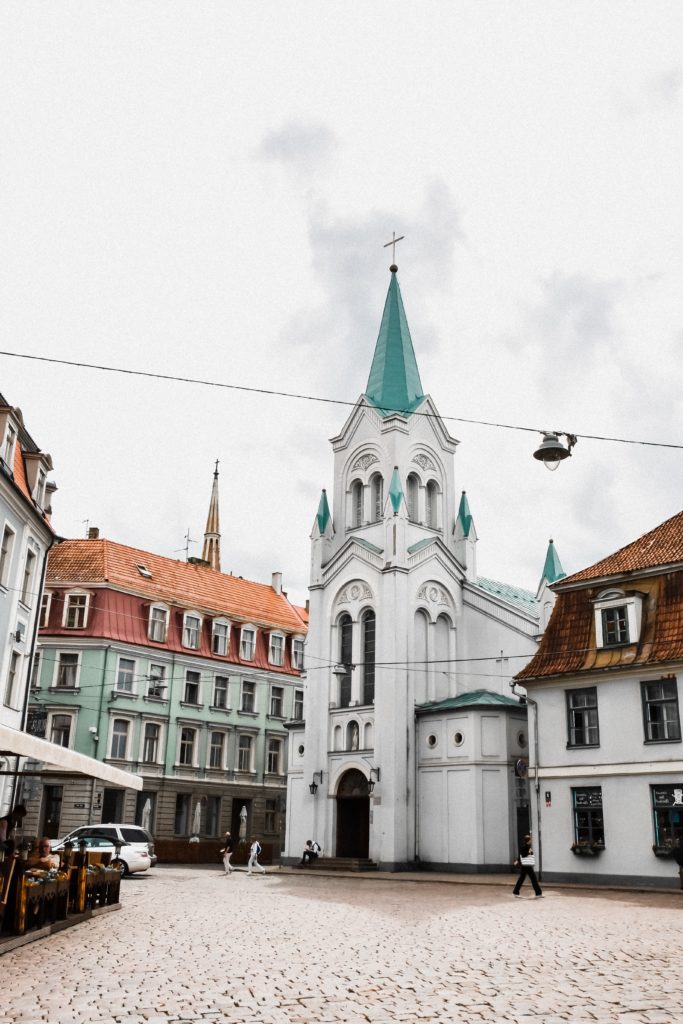

In Latvia, you will typically have a 40 hour work week, divided into 8 hours a day. You have the right to get paid work overtime, and you can check all these details in your work contract. But remember that overtime work must not exceed 144 hours within four months.
Once you are employed, you have a minimum of 4-week annual leave and ten days of paid sick leave. Women also have the right to 3 months of paid maternity leave and men ten days of paid paternity leave.
If you are not satisfied with your working conditions, the employer, or the job itself, you always have the right to resign. As an employee in Latvia, the resignation notice period is one month unless the contract between you and the employer specifies another period. This is also the given period if your employer decides to terminate the employment relationship.
Your contract might also contain a probationary period that should not exceed three months. During this probationary period, both you or your employer can terminate the work contract by giving prior notice in written three days before termination.
If you are looking for opportunities to network while you live and work in Latvia, we recommend Eventbrite. Assisting at events is the perfect occasion to make business connections and meet new people in your sector. Other ways to find events or connect with others are via Facebook groups such as Expats in Latvia and Riga Expats. The latter is a non-profit group that organizes monthly meetings in different bars, cafes, and restaurants. Their goal is to gather people from various backgrounds and have a good time together.
As it is a member of the European Union, EU nationals do not need a work permit to move to Latvia. However, they will need to apply for a residence permit to stay longer than 90 days.
Here's how you do it:
1. Make an appointment - There are four offices in Riga and numerous regional offices around the country that you can make an appointment at, by email or phone. Be clear that you need it in English. The office will get back to you within 24hours with a date and time and a confirmation number.
2. Health insurance - You must prove that you have healthcare coverage to get your residence card. As an EU national, the way to do so is to carry your EHIC (European Health Insurance Card) with you. However, if you are employed in Latvia, you are entitled to get stated healthcare.
3. Get passport photos - While you are at your appointment, they will take pictures of you to include them in your residence card. However, they still need two id photos on file.
4. Fill out the forms - Pre-fill the forms before your appointment since this will save you lots of time. The form for EU citizens is on the website.
5. Go to your appointment - Make sure you bring copies of the following documents:
6. Return to pick up your residence card
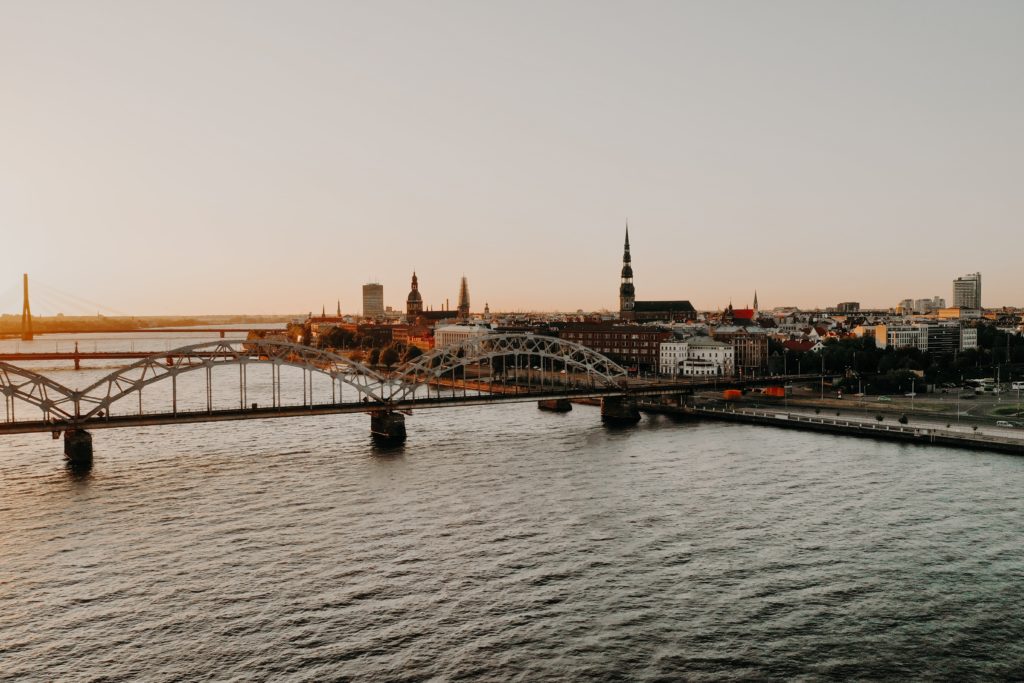
Once you get a job in Latvia, you will also need to apply for a tax number called TIN (Tax Identification Number). This number consists of 11 unique digits and is your identification within the social security system. With it, you will have the right to receive social security services, like state pension insurance, unemployment, illness or maternity leave benefits, etc. The cost for social security will be automatically deducted from your salary every month, so your employer will ask for it during your first days of work.
If you don't want to deal with the hassle of exchange fees, try to open a bank account in Latvia as soon as you land there. There are many banks to choose from, all of which offer different services. The largest ones are Swedbank, Rietumu, Citadele, and Luminor.
To open an account, you can either make an appointment (recommended for non-native speakers to ensure an English-speaking clerk) or go directly to the bank of your choosing. The documentation you need to bring to open an account will vary from bank to bank, so it is better to ask in advance to ensure you carry all the correct documents to the appointment. Here are the ones most of the banks ask for:
Once you get all your documents verified and your bank account activated, you will also need to visit the branch to pick up your debit card once it is ready, in case the bank does not send it by letter.
The public healthcare system is overseen by the Latvian National Health Services and is open to expats working in Latvia. However, the quality of healthcare care is not of the same standard as many other European nations. Although it has improved in recent years, Latvia has one of the lowest ranking healthcare systems in Europe, mainly due to long waiting times for medical treatment, lack of facilities in the countryside, and a shortage of medical staff.
For this reason, many expats take out private healthcare insurance and either use private hospitals in Riga. When it comes to choosing a healthcare insurance plan, there are numerous options available. You can even apply for international healthcare insurance before leaving your country, which will cover you wherever you live in the world.
The average salary in Latvia differs depending on the profession. For example, a secretary will make about €871 a month, while a graphic designer can make €1200 monthly. The salaries in Latvia are not as high as in other European countries, but remember that the cost of living is much more affordable, so it balances out quite nicely!
Latvia used to have a flat rate for income tax but has now adopted a progressive Personal Income Tax (PIT) system. The progressive rate is based on the level of annual income:
You will also be required to pay social security contributions on top of your income tax, which currently stands at a rate of 11%.

If you are thinking about moving to Latvia, you can expect an unforgettable experience in one of Europe's last hidden treasures. Although it is a rather small country (nearly 2 million inhabitants), Latvia has an excellent standard and quality of life, with many enticing job opportunities and a fast-growing economy. Here you can always secure a chunk of nature all for yourself, be it for cycling or for enjoying a walk at the beach.
Moreover, you will be surprised by the number of expats amazed by this beautiful country that decided to give it a chance. So if you are already thinking of finding out by yourself what makes this humble nation a magnet for foreign nationals from different parts of the globe, check out some of the job opportunities in Latvia that we offer here at Workwide Recruit!
Let’s face it, moving abroad, where everything is unfamiliar, can feel like a bit of a maze. You’re struggling with...
Read moreWelcome to the beating heart of Spain – Madrid! This bustling metropolis offers a unique blend of rich culture, historical...
Read more
